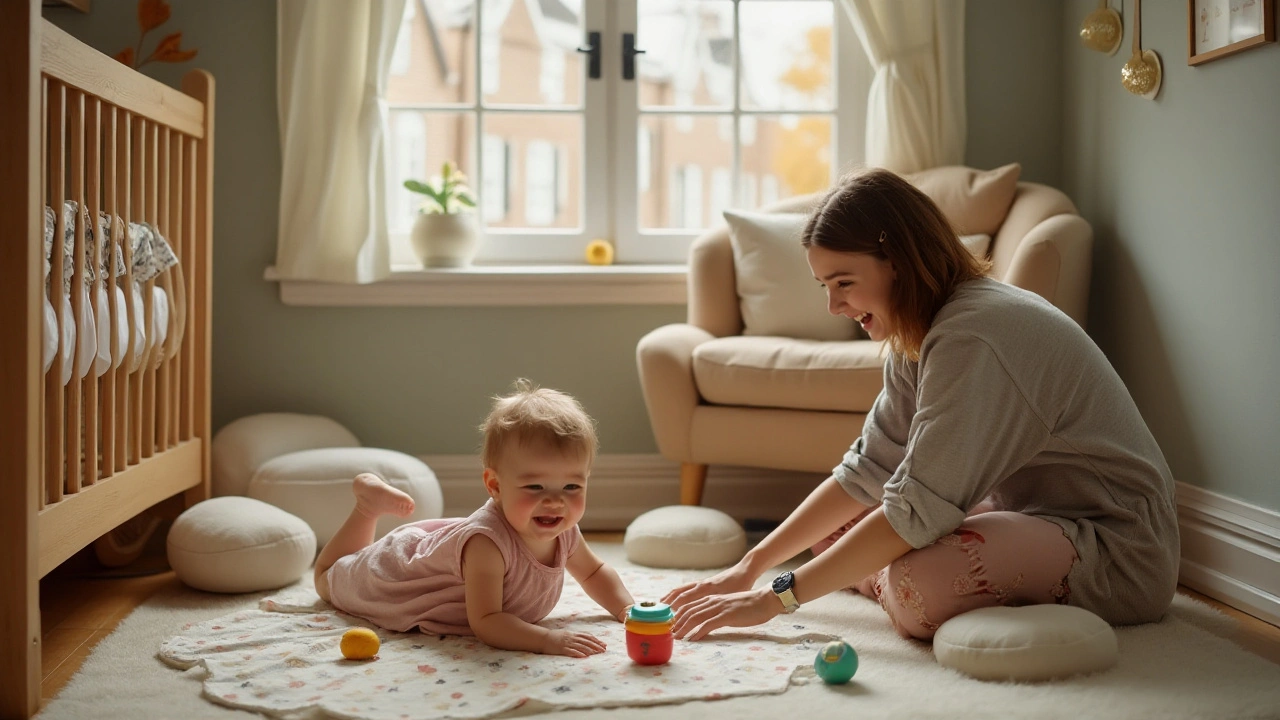Infant Activities That Keep Your Baby Happy and Growing
Looking for ways to keep your newborn entertained without spending a fortune? You’re in the right spot. Below are hands‑on activities that help develop motor skills, language, and curiosity while you bond with your baby.
Sensory Play Made Easy
Babies learn through touch, sight, and sound. Grab a few soft scarves, a crinkly paper bag, or a chilled spoon (make sure it’s clean) and let your infant explore the textures. Talk about what they’re feeling: “This scarf is smooth,” “The bag makes a funny noise.” Simple narration reinforces language while the different sensations fire up their brain.
Even a bowl of warm water works wonders for sensory play. Fill a shallow tray with lukewarm water and let your baby splash their hands. The gentle temperature feels soothing, and watching the ripples catches their eye. Always stay close—water safety comes first.
Tummy Time Tricks
Most parents hear about tummy time but skip it because the baby fusses. Turn it into a game by placing a favorite toy just out of reach or lying down opposite them to make eye contact. Start with 30 seconds a few times a day and gradually add minutes as they get stronger. Strong neck muscles mean better head control, which later helps sitting up and crawling.
Use a rolled towel under their chest for extra support if they’re new to the position. Praise every lift‑up effort; positive reinforcement makes the activity feel rewarding instead of a chore.
Music & Movement
Babies love rhythm. Sing a short lullaby, tap a simple beat on a drum or even clap your hands. When you move gently with them—rocking side‑to‑side or swaying—you’re teaching balance and body awareness. No fancy instruments needed; a kitchen spoon can double as a maraca.
Try “call‑and‑response” songs: you sing a line, pause, then let the baby coo back. This back‑and‑forth builds early conversational skills without you realizing it.
Read Aloud Early
Even if your infant can’t read yet, hearing the cadence of words is powerful. Pick board books with big pictures and point to each image as you name it. Repeating phrases like “Look at the red ball!” helps them connect sounds to objects.
Make reading a daily routine—after bath time or before a nap. The predictable schedule gives your baby a sense of security, plus you both get a calm moment together.
Outdoor Exploration (When Weather Allows)
A short walk in the stroller isn’t just for fresh air; it’s an adventure. Point out trees, clouds, or passing dogs. Describe colors and sounds: “The sky is blue,” “That dog is barking.” Outdoor stimuli are richer than indoor toys alone.
If you have a safe, grassy spot, let your baby sit on a blanket and feel the grass under their hands. The natural texture adds another layer to sensory play.
Remember, safety always comes first—no loose blankets in cribs, no small objects that could be swallowed, and keep an eye on temperature for water‑based activities.
Mixing a few of these ideas each day gives your infant variety without overwhelming you. You’ll notice milestones like stronger neck muscles, more babbling, or longer focus spans. Most importantly, you’re building a foundation of trust and fun that lasts into toddlerhood.
Enhancing Baby Development: Tummy Time and Early Motor Skills Strategies
Planning for a baby's development involves understanding crucial stages like tummy time and the development of early motor skills. These activities are vital for strengthening the muscles babies need as they grow. The practice aids in preventing positional plagiocephaly and promotes milestones such as crawling and rolling over. Parents can incorporate tummy time into daily routines, ensuring safety and comfort, to support their baby's physical growth effectively.
READ MORE
